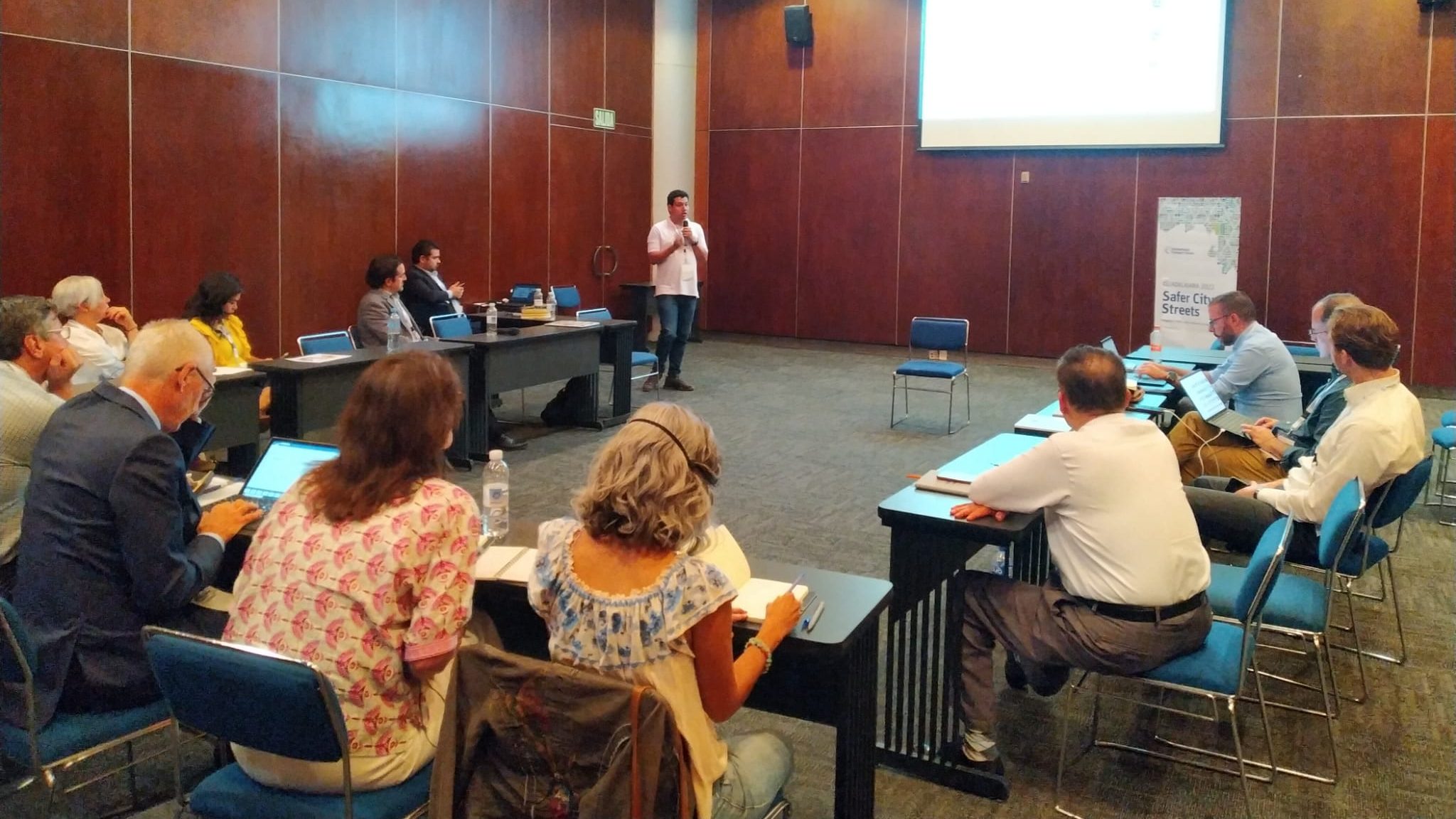
To profile the value of engaging with NGOs to make cities safer and more livable, the Alliance organized a side-event at the International Transport Forum’s Safer City Streets conference last week.
Safer City Streets is a global network of around 50 cities seeking to improve their urban road safety performance. NGOs are natural partners for city and municipal governments. The side event, titled NGOs Driving Change: Key elements of effective advocacy, brought forward lessons from Alliance member NGOs, Centrico, Mexico; Despacio, Colombia; iRAP, and Victimas de Violencia Vial, Mexico, as well as a Jalisco local government perspective on working with NGOs.
See the presentations HERE.
NGO leaders, including the Alliance’s Director of Research and Accountability, Chika Sakashita, were featured throughout the conference, demonstrating the increasing recognition for what civil society can offer.
Chika highlighted NGO accountability to demand implementation and funding of evidence-based interventions to help deliver the global road safety target to reduce deaths and injuries by at least 50% by 2030. She gave examples of speed management interventions that can help city authorities to save lives and prevent injuries while also preparing for the rapid urban growth anticipated in the coming years.
Chika further described the NGO advocacy journey: from advocacy, to obtaining commitments from decision makers, to implementation of evidence-based interventions, to continual tracking and scrutiny of government actions until actual implementation of the commitment occurs, followed by promoting implementation successes, which is vital to push for scale up and to ensure that interventions are sustained for the long-term. The Alliance is developing and piloting a tracking tool to measure this journey, to help NGOs to track government actions, to hold governments accountable with data, to demonstrate NGO accountability, and to find ways to continually improve our advocacy efforts to more effectively influence actions at country levels.